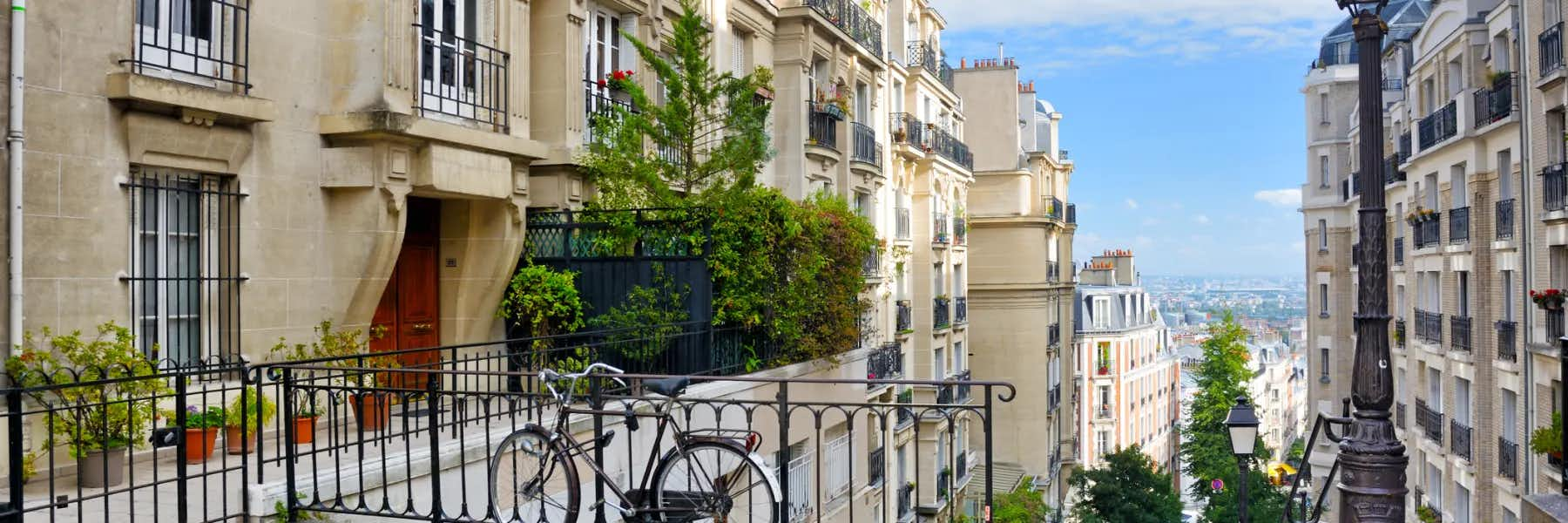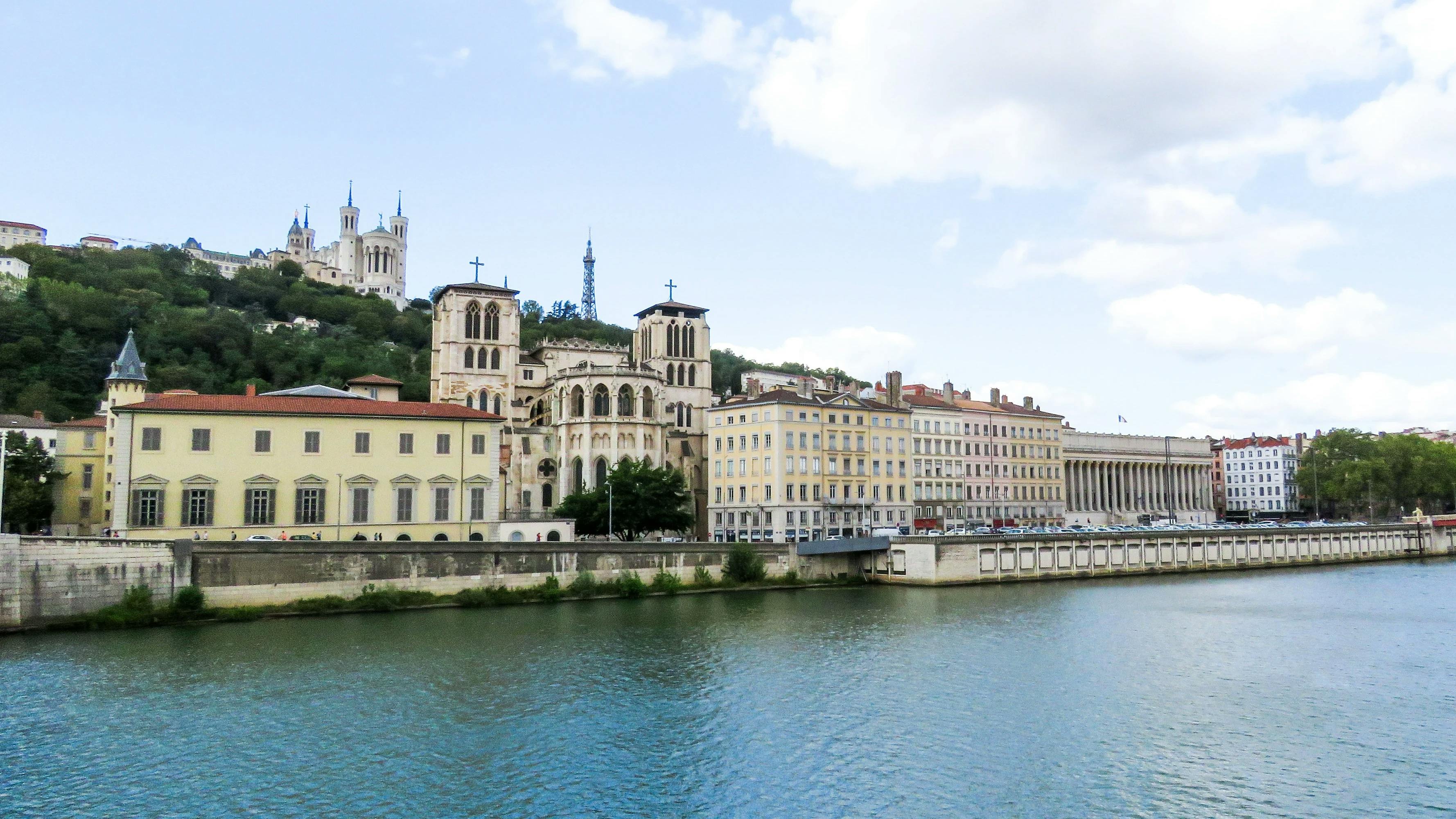Boasting world-famous cuisine and picturesque vineyards stretching from Burgundy to Bordeaux and to the southernmost tip of Provence and the Occitanie region, France is arguably one of the most romantic and evocative countries in the world.
For those who have decided to call this wine-and-cheese capital of Europe home, the living is easy… with gourmet lunches that can last way into the early evening hours and a wealth of social and cultural activities from big cities to quaint countryside villages. In a place heavily focused on achieving a work-life balance, including a healthcare system that ensures all residents have access to affordable and high-quality care, life in France moves at a much slower, healthier rhythm than in the United States.
Whether you come to retire or to take advantage of the country’s 35-hour work week, here are five reasons why moving to France is likely one of the best decisions you’ll ever make.
Get Your Free France Report Here
Get Your Free France Report Here
Learn more about France and other countries in our daily postcard e-letter. Simply enter your email address below and we’ll send you a FREE REPORT: A Taste of France: All the Ingredients for the Good Life.

By submitting your email address, you will receive a free subscription to IL Postcards and special offers from International Living and our affiliates. You can unsubscribe at any time, and we encourage you to read more about our Privacy Policy.
Where to Live in France
France’s diverse regions offer something for everyone. Here are a few standout areas for expats:
Dordogne & Occitanie – Known for their relaxed pace of life, these regions are home to historic villages, vineyards, and stunning countryside. Many British and American expats settle here due to the affordable property prices and welcoming communities.
Brittany & Normandy – Offering cooler coastal climates, charming medieval towns, and dramatic seascapes, these regions provide a slower pace of life and lower cost of living compared to the south. Strong expat communities thrive here, particularly in areas like Dinan and Bayeux.
Provence & Riviera – These sun-soaked regions boast stunning Mediterranean landscapes, rich history, and upscale living. While real estate prices are higher, places like Aix-en-Provence and Nice offer a blend of culture, gastronomy, and natural beauty.
Alsace & Burgundy – Ideal for wine lovers and those seeking a rural, storybook setting, these regions offer picturesque half-timbered houses, vineyard-dotted hills, and strong culinary traditions. Alsace’s German influence makes it unique, while Burgundy’s rolling countryside is a haven for nature enthusiasts.
Tip: If affordability is a priority, consider Occitanie or Brittany, where real estate remains relatively accessible compared to the more tourist-heavy parts of France.
Culture
The pillars of French culture are based on several governing principles. The first, which you’ll experience in concert halls, museums, cafés, bistros, and dining rooms around the country, is the art de vivre—quite simply, the art of living well. One of the pillars of this tenet is France’s culinary heritage. If you want to get to know the French, join them for a meal. Here, you’ll find the freshest products of the season, prepared with delicate attention and seasoned to perfection. From the finest Michelin-star restaurants to the humblest village homes, France is most certainly “all about the food.”
Any French person worth their salt will be familiar with the country’s regional food specialties and what products are in season month to month. Whether it’s plump honeydew melons from Cavaillon in the south of France, strawberries from Périgord in southwestern Dordogne, or golden Mirabelle plums from northeastern Lorraine, French products that are closely tied to each region’s terroir—the special features of climate, topography, and soil characteristics that contribute to the flourishing of a particular crop.
Most closely tied to wine, the terroir concept is what forms the complexities of a full-bodied Burgundy red or a dry and crisp white from Cassis.
Of course, France’s culinary traditions don’t just stop at tasty strawberries or crates of melons. The country has a storied gastronomic history, including iconic figures like Paul Bocuse (“the pope of French gastronomy”) and modern-day revered chefs like Alain Ducasse, Helene Daroise, and Thierry Marx.
Beyond what you might find at these highly stylized tables, the simplicity of a French home-cooked meal is also a thing of wonder. When the French sit down to break bread with friends and relatives, they take the time to savor each course and be fully present in the moment.
The French gastronomic meal attained UNESCO World Heritage status in 2010 as part of the “intangible cultural heritage of humanity” - including the setting of the table and the conversations enjoyed over the meal. The French, if anything, enjoy a good debate.
Another aspect of French culture that bears mentioning is their attention to politeness. Social interactions are carefully measured in terms of greetings, conversation topics, and hospitality, which are all closely tied to the French language and not challenging to pick up once you’ve been in the country for a few months.
If you want to fit in with the French and find friends among your neighbors, the best thing to do is be patient and observant. Go to the same cafés, bakeries, bistros, and farmers' markets on a regular basis. Even if your French skills aren’t quite there yet, remember to greet everybody you meet, and you’ll find you’re on your way to acquiring a sense of community. The French are a bit of a reserved group; they take a while to get to know, but once you have that first invitation to lunch or dinner, you’re all but guaranteed a friend for life. Although a bit shy and nervous when first meeting folks, the French are genuine and kind people who take helping others very seriously.
Rural France, especially in Dordogne, Brittany, and Occitanie, are known to be more welcoming to expats, with strong Anglo-French communities. France’s café culture isn’t just for tourists—locals spend hours at cafés discussing politics, culture, and daily life. Markets, wine tastings, and local festivals also provide excellent opportunities to connect with locals.
Language
If you’d like to get in good with the French from the moment you arrive, you’ll want to learn a few basic phrases. While many think that the French will only interact with you if you speak their language, thankfully, that’s not the case.
As mentioned earlier, French culture lives with a fairly strict set of rules outlining common courtesy and politeness—which, if truth be told, only amount to a handful of truisms passed down from every French maman.
First of all, remember to always say bonjour (hello) when you enter a store or sit down at a café or restaurant. That is your ticket to starting off on the right foot. Even if bonjour is your only French word, the sales assistant or waiter will immediately perk up. A simple bonjour and a few si vous plait’s (thank you’s) and merci’s sprinkled around means that you care enough about the French and their culture to make a polite effort.
As far as going deeper into the language, it’s a good idea to reach a beginner level of French, but not an obligation.
The French language is a beautiful, richly nuanced dance that will take a few years to speak very well. That being said, it’s increasingly common for the French to try out their English nowadays, and there are English-speaking expat communities all around the country if you want to ease into language learning.
It’s advisable to get a good French grammar and vocabulary book before arriving in France. Also, several French language schools are available around the country. In Paris, you’ll have many opportunities to study. Popular schools include Alliance Française and French As You Like It.
Toulouse has Langue Onze, and in Nice, you’ll find Actilangue and Azurlingua.
Aix-en-Provence is a beautiful university town in southern France where the language institute, IS Aix, offers short- and long-term group classes and exam preparation. Check out their website for dates and group rate prices.
You’ll be surprised how quickly your French will come along by being actively immersed in the language. For many, what was once a cause for worry and concern has become one of their most treasured joys. The language of romance and philosophy, being able to speak French, is a source of pride and accomplishment.
Healthcare
With the healthcare system frequently cited in the top 10 worldwide and once ranked number one by the World Health Organization, getting access to high-quality and affordable medical care in France is a breeze.
To be eligible for French healthcare, North American expats must only possess a Long Stay visa procured in the United States or Canada.
When you arrive on a Long Stay visa, you’ll apply for healthcare via an online form (www.ameli.fr) after three months of living in the country. France must be your primary residence for six months of the year to continue eligibility.
There are no age limits, pre-existing condition restrictions, or networks to join. You can visit any hospital or clinic and see any doctor or specialist you like in France. It’s a completely different system than the United States, and the government sets prices.
For retirees, the amount paid into the system can be considerably low. Thanks to a tax treaty with the United States, France cannot include any Social Security, pension, or passive income earned into the healthcare calculation. In other words, you can’t be doubly taxed for monies you’ve already paid to Uncle Sam.
As a ballpark figure, a couple with $36,000 of active income to declare would pay around $1800 a year for French healthcare.
This fee entitles you to 70% off doctor’s visits, which are around $27 - meaning you’ll pay approximately $9 out-of-pocket to see a doctor. Specialist visits are $55, and also covered at 70%, so around $16.50 spent.
Hospital visits are around $100 a day, covered at 80% for the first month and 100% for each additional month.
Prescription drugs, already at rock-bottom prices compared to the United States, are reimbursed at 70% to 100%.
Perhaps one of the most attractive features of the French healthcare system is the ability to be reimbursed at 100% for long-term illnesses. Persons with Alzheimer’s, Parkinson’s, cancer, heart disease, certain forms of diabetes, and a host of other ailments are entitled to 100% coverage for medical treatment for the duration of their illness.
Tip: If you’re moving to France, sign up for a mutuelle (private top-up insurance) early to avoid surprise medical costs. If you have pre-existing conditions, check if your medications are available in France and how they are covered by the healthcare system.
Get Your Free France Report Here
Get Your Free France Report Here
Learn more about France and other countries in our daily postcard e-letter. Simply enter your email address below and we’ll send you a FREE REPORT: A Taste of France: All the Ingredients for the Good Life.

By submitting your email address, you will receive a free subscription to IL Postcards and special offers from International Living and our affiliates. You can unsubscribe at any time, and we encourage you to read more about our Privacy Policy.
Community
You’ll find helpful and socially active English-speaking communities throughout France - although most are concentrated around popular expat destinations like Paris, the French Riviera, the Dordogne and the south of France, and larger cities like Marseille, Lyon, Bordeaux, and Strasbourg. It’s recommended to contact these groups well before making the move to la belle France. They’ll be able to give you a “boots on the ground” perspective and may even assist you in the transitional phase, including securing a long-term rental, recommending banks, and where to go for the best croissants and café au laits in your neighborhood.
The following is a small sample of expat groups around the country. The Facebook group, Americans Living the Dream in France, is also an excellent resource to consider.
American Library in Paris, 10 rue du Général Camou, 75007 Paris.
The American Church in Paris, 65 quai d’Orsay, 75007 Paris.
The American Cathedral in Paris, 23 avenue Georges V, 75008 Paris.
Anglo-American Group of Provence, 72 rte des Milles, CD 9, Aix-en-Provence 13090.
The American Club of the Riviera, “Rève d’Or” 111 Boulevard Leader 06150 Cannes.
Work and Business
The world’s fifth-largest exporter, France, has a per-capita GDP of $43,659 (World Bank 2021), and inflation stands at 5.2 % at the time of writing. France’s GDP growth rate was 6.8% in 2021, and unemployment currently comes in at just over 7%. After a few touch-and-go years, the French economy still has lots of things going for it—including ultra-modern transport and communications systems, competitive energy costs, and a good credit rating.
It also has a 35-hour work week and many generous provisions for the workforce – although it’s a difficult task to secure a job in a French company unless you’re a French citizen, have an EU passport, or have been sent from a U.S.-based company to work in their France-based offices.
A prospective employer must obtain authorization from the Ministry of Labor for you to apply for a standard work visa – it’s a lengthy and costly process for the prospective company. It’s unlikely this will be given if there are French citizens who could do the same job. Worker’s rights are very strong in France, and with historically high levels of unemployment, the French or EU citizens will always have priority.
Never fear, all is not lost! If you have specialized qualifications or can bring a notable artistic or innovative addition to the French business world, you can apply for a Talent Visa. Encompassing several possible projects – including educational research and bringing a new business concept to France – the Talent Visa prospects are clearly explained on the government’s official visa website.
If you would like to start a business, the process can be quite a complicated endeavor, and many seek the services of a France-based lawyer to guide them through the steps. The setup, legal requirements, and tax ramifications are thoroughly detailed in the International Living publication: Escape to France.
Conclusion
Living in France provides endless possibilities for enjoying la belle vie – the good life. Whether it be in a cozy Provençal hamlet or a dynamic cosmopolitan city like Lyon, Nice, or Paris, the gourmet gem of Western Europe never disappoints. With a dynamic economy, a healthy approach to work-life balance, and a healthcare system that’s second to none, the hardest decision may be where to set up shop.
From the glistening beaches of the Mediterranean coast to the castle-filled Loire Valley or the elegant vineyards of Burgundy, living is easy and relaxing, with a chilled glass of rosé or red wine just might be your biggest priority of the day.
Get Your Free France Report Here
Get Your Free France Report Here
Learn more about France and other countries in our daily postcard e-letter. Simply enter your email address below and we’ll send you a FREE REPORT: A Taste of France: All the Ingredients for the Good Life.

By submitting your email address, you will receive a free subscription to IL Postcards and special offers from International Living and our affiliates. You can unsubscribe at any time, and we encourage you to read more about our Privacy Policy.














